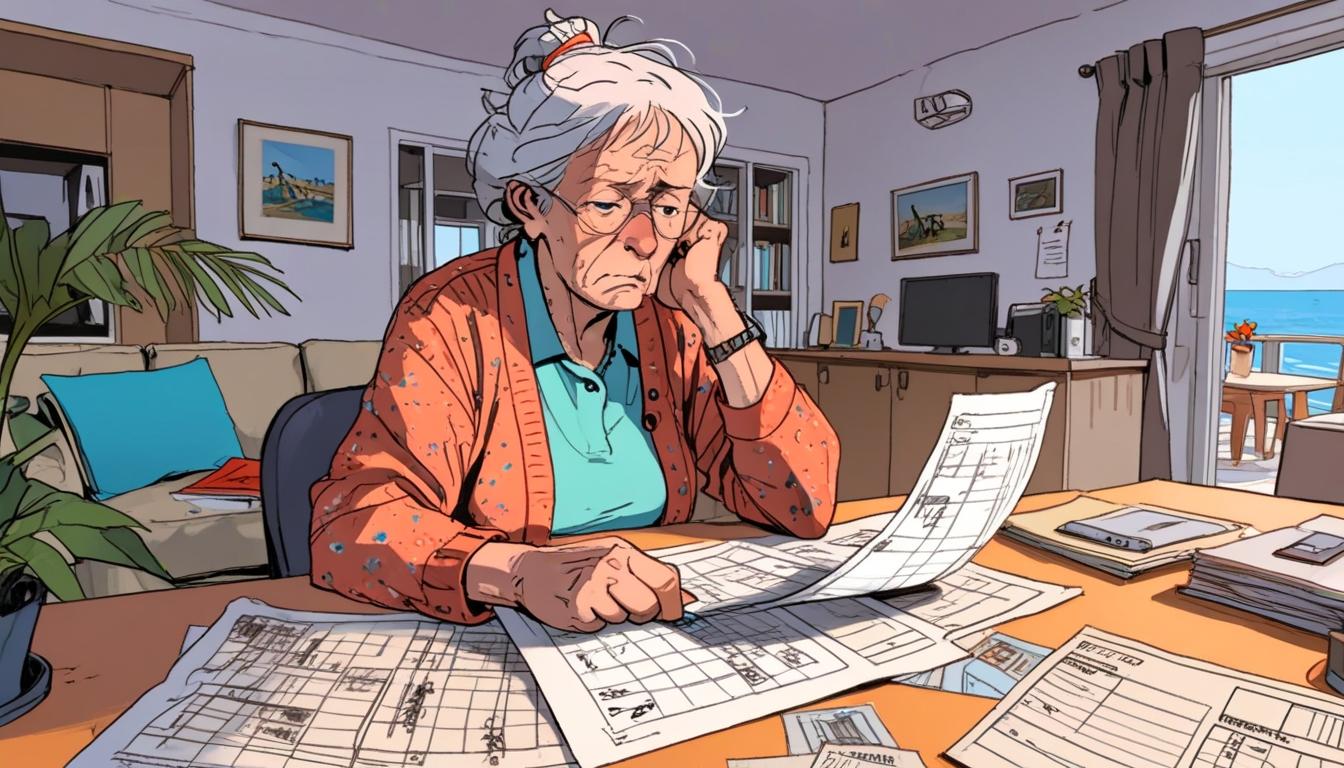Judith Robbins, a 75-year-old manager of holiday lets in Blackpool, faces a precarious financial situation as her properties have recently been reclassified as second homes. This shift has led to an overwhelming council tax bill, which she asserts she cannot afford. Her Westward Holiday Apartments, a longstanding family business catering to budget-conscious holidaymakers, have now become a symbol of the local challenges facing traditional accommodation providers in the wake of new taxation rules.
Under the previous regulations, Mrs Robbins paid around £3,500 annually in business rates, benefitting from small business rates relief. However, the rules changed in October 2022, and she now finds herself liable for council tax amounting to about £9,000 a year. “It really is unbelievable,” she expressed. “We’ve been here over 22 years, and I've never once been behind with any of my payments,” a testament to her commitment and diligence as a business owner.
The government has claimed the reclassification is a part of a wider crackdown on second homes and holiday rentals, motivated by concerns that these properties are limiting housing availability in popular tourist destinations. Since the new tax rules took effect, more than 9,000 properties in England have been reclassified, impacting local economies significantly. Ian White, from hotel association Stay Blackpool, argued that the change has severely affected local businesses, saying, “All of the businesses that have contacted me are considering selling because they don’t know how they will cover these new bills.”
Mrs Robbins is navigating the appeals process, assisted by her grandson Jordan, who highlighted a broader issue: “Nobody wants to help, nobody wants to get involved,” he said, emphasising the struggle many face under the new rules. With delays in the appeals process, which can take up to six months, the uncertainty surrounding their future deepens. The Valuation Office Agency (VOA), tasked with assessing appeals, has acknowledged the significant economic pressures on those affected but has also noted that it deals with a high volume of cases.
This reclassification is not just limited to Mrs Robbins. In Blackpool alone, numerous self-catering operators have reported similar predicaments, with local councils referring affected citizens to their MPs for support. Blackpool South MP Chris Webb has raised concerns over the issue with the Housing Secretary, calling for a fairer system that accounts for the plight of small operators.
Wider implications of the recent tax reforms are evident across the UK. The newly introduced ability for local authorities to charge up to 100% more in council tax on second homes poses a significant challenge for owners, especially in popular areas like Cornwall and the Lake District, where second homes often outnumber local residences. Liberal Democrat MP Tim Farron highlighted the imbalance created by second homes in his constituency, where local families struggle to secure housing due to the high number of properties being used as holiday lets: “You lose your primary schools, secondary schools, GPs… you lose your communities,” he remarked.
Many homeowners are now opting to switch from council tax to business rates to mitigate the financial burden, following a significant increase in the registration of holiday lets for business rates, from 63,000 in 2020 to 78,000 in 2024. New measures stipulate that for a property to qualify for business rates relief, it must be made available for let for at least 140 days a year and actually rented out for a minimum of 70 days. Such stringent criteria have left many, including Mrs Robbins, caught in a regulatory web that currently seems to offer little relief.
As these new regulations come into play, the resultant ripple effect throughout the economy indicates that many long-established family-run businesses may not survive the transition. For individuals like Mrs Robbins, the dream of running a holiday let is becoming an unmanageable struggle against an evolving regulatory landscape. Calls for reform and a more nuanced approach to sheltering local businesses are growing louder, as Wales stands on the precipice of further legislative change related to holiday lets.
It remains to be seen how these developments will unfold, but for Mrs Robbins and countless other operators, the immediate future looks bleak. The ongoing situation calls for urgent attention and a re-evaluation of how such policies impact the livelihood and stability of local communities reliant on tourism and hospitality.
Reference Map
- Paragraph 1, 2, 3, 4, 5, 6
- Paragraph 5, 6
- Paragraph 8
- Paragraph 7
- Paragraph 3, 4, 5
- Paragraph 1, 8
Source: Noah Wire Services
